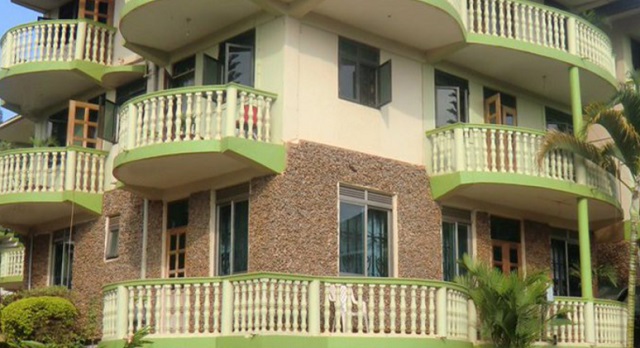
Rawlence Ndejjo, is a returnee from Belgium. He returned on March 18 and was quarantined at Arch Apartments and Hotel in Kampala. Arch apartments and Hotel is one of the quarantine centres that the government chose to contain people returning to Uganda from abroad during the COVID-19 pandemic. He narrated his experience to The Independent’s Patricia Akankwatsa.
“My plan had been to self-quarantine for 14 days as per the previous policy and so it wasn’t hard to adjust to spend this same time in an institution,” Ndejjo says.
He says that there is not much to do in quarantine as you are confined to your room.
“Depending on your hobbies, you may want to have something that helps you pass time easily,” he says.
“One of my favourite pastimes is reading and I had two books with me.I also enjoyed having balcony chats with colleagues getting to know each other and discussing our anxieties,” he adds.
He says that being in a quarantine environment, your mental health and concentration may not be the best, but you can still accomplish some light tasks.
“The peer support was also key within the WhatsApp group that we created where we shared a lot and comforted each other. Such a rallying platform is very important to keep going,” Ndejjo adds.
Whenever I went back to my room, I kept wondering how others were spending their days, he says. Some watched movies or television, listened to music, spent time on social media, slept long hours or kept talking on the phone. I personally never found most of these appealing except news that I watched for an hour or so every day to keep tabs of what was going on in the world, he narrates.
He says that in quarantine, it is important to keep your expectations low and remember that you are not there for holiday but rather for separation purposes as a disease control mechanism. So a simple comfortable room with basic stuff should be enough to keep you going.
“The hotel provided us warm meals and water on time. They were also willing to support any special dietary requirements and so you had to communicate this early to ease your survival. It was also possible to liaise with the hotel to buy you essentials you needed. I routinely ordered for fruits and avocado,” he says.
“With the basic needs of life of food and shelter settled, I was good to go,” he says.
What the hotel management says.
Asha Kassim Saad, the human resource manager at Arch Apartments and Hotel says that the Ministry of Tourism through the Uganda Hotels Association contacted them and asked them if they could use their place as a quarantine area.
“I was skeptical and timid. The rate at which the virus spreads scared me a lot,” Asha says.
“Although we hadundergone training, it was still not easy but since we had been closed and not in business, we took on the task,” she adds.
She says the first thing they ensured was their safety and how they were going to handle guest rooms.
“We provided each guest room with two paper bags; one for the rubbish and one for the laundry. Every day the housekeepers went from door to door picking up the laundry which would be placed on the doorstep,” she says.
“We never entered the rooms for 14 days. The food would be packed and sent to each room but cutlery stayed in the room. Everyone washed it themselves,” Asha narrates.
She says that the Ministry of Health sent a nurse to do daily medical checkups everyday and a psychologist to do mental checkup.
Institutional quarantine is one of the measures employed by the Ministry of Health to control the spread of COVID-19. Whenever any Ugandan returns since March, they have to undergo quarantine.
According to the guidelines provided by the Ministry of Health (MoH), quarantine involves the restriction of movement, or separation from the rest of the population, of healthy persons who may have been exposed to the virus. The objective of quarantine is to monitor exposed persons for symptoms and ensure early detection of cases to prevent additional exposures or spread of infection.
According to the Ministry of Health, there are institutional quarantines in the 37 gazetted centres.
Dr Richard Mugahi, the person in charge of quarantine centres says that the government provides for public and private institutional quarantines but most people want to stay in hotels because the public institutions are not as good as the private ones that offer a number of services like television and air conditioning.He adds that before a hotel is accredited to act as a quarantine center, they are assessed for suitability.
****
 The Independent Uganda: You get the Truth we Pay the Price
The Independent Uganda: You get the Truth we Pay the Price


